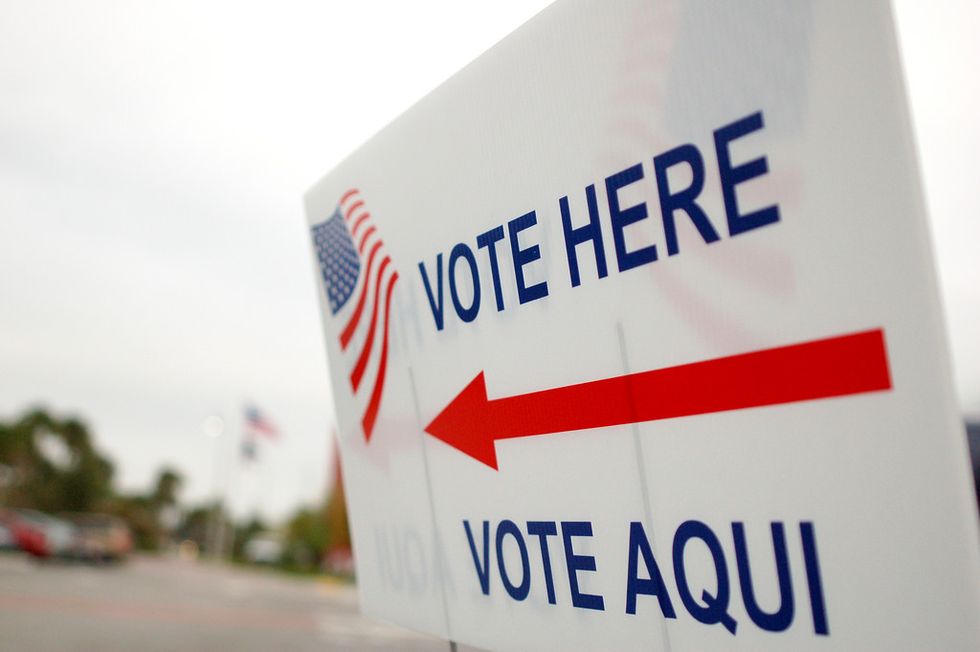On November 7th, 2017, I walked to the student center to find the polling place. It is already past 9:30 am, I hadn't eaten breakfast yet. I had remembered hearing that many polling locations open very early and there are long lines to wait. It was my first-time voting. At the polling room, there were two people, one at the sign in table and one at the voting booth. There wasn't a line, not even another student who was voting. After I cast my vote, the person at the booth shook my hand. As I leave the room, there is still no one behind me waiting to vote.
College voting isn't as simple as it should be especially if you are attending a college outside of your home state. As a college student, you can either vote in the state/town that you are from or vote in the state/town that your college is in. If you are already registered in your home state, you can either request an absentee ballot, which allows you to vote for candidates in your hometown/state by mail, OR you can cancel voter registration in your home-state and then re-register at your university to vote for candidates for the town/county/state that your university is in. Even if you registered to vote and are going to an in-state college, you may still need an absentee ballot if you aren't able to make it to the polling location for your home address. You could also update your address to the one of your college dorm or apartment, the only difference is that the local candidates would be different. If you aren't registered at all, then you should register at your university with your dorm or apartment mailing address. It is probably better to register at your university with your residence hall or apartment address since you will be spending most of your time there and local politics influence the university, but it's your call.
Note: You CANNOT be registered in more than one state (it is illegal)! If you move between states, you should either cancel your registration in the state that you are leaving OR submit a National Mail Voter Registration Form (NMVRF) to update your address. If you are voting in-person, then make sure you find out your polling location beforehand.
Registering to vote and/or requesting an absentee ballot, is pretty simple. You will need your legal name, date of birth, current mailing address, phone number, email, and your driver's license number OR last 4 digits of your social security number. You should request your absentee ballot at least 30 days before election day. If you need to register to vote, be sure to check the registration deadline for your state. In some states, you can even register to vote online.
I understand, that most students won't have the time or interest to do extensive research on candidates. Political debates can be very long and often boring. It can be hard to find out what is on your ballot and sort out the fluff and the truth about a candidate for a position. Ballotpedia makes the process so much easier. Ballotpedia has a sample ballot look-up and provides quality, neutral information on the candidates running as well as other ballot questions if there will be any. You should also be able to find sample ballots on your county's election page.
Wikipedia can also provide some basic, non-partisan information on some candidates at the state or federal level. Take a look at each candidate's campaign website, specifically the issues tab. The whole research and decision process can take as little as 20 minutes, which can easily be fit into your schedule.
Grandma and grandpa are generous and inspirational people, but you most likely won't agree with all their political views. Unfortunately, they're the ones whose voices are heard by the government because they actually vote. Senior citizens make up the largest percentage of voters in all elections. There are people in public office who don't want you or people your age to vote because our generation is different and less predictable. They don't want to lose their seat. There is even one man running for governor who thinks that an 18-year old is "too young and naive" to make proper decisions. The average US senator has around an 80% chance of being re-elected, and the average congressman has a 90% chance of being re-elected. The low voter turn-out in elections, especially off-year or non-presidential elections make it easy for incumbents to be re-elected. The voices of young, informed voters are needed now more than ever before. Your vote has as much power as Taylor Swift's vote, Warren Buffet's vote, Melania Trump's vote, your professor's vote or your parents' vote. If you are dissatisfied with anything in society, you've got a good reason to vote.
















